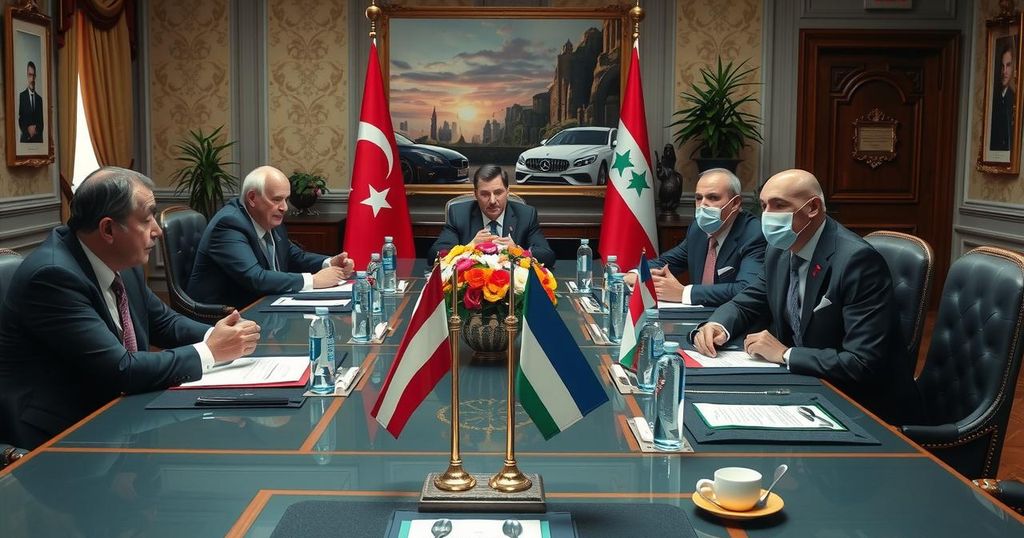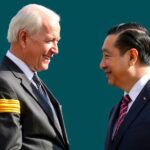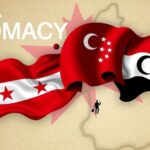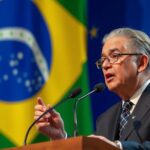Politics
AFRICA, AQABA, ASIA, DIPLOMACY, EGYPT, EUROPEAN UNION, FIGHTER JETS, GEIR PEDERSON, HA, INTERNATIONAL RELATIONS, JOE BIDEN, KA, KURDISH - LED SYRIAN DEMOCRATIC FORCES, LEBANON, MIDDLE EAST, NORTH AMERICA, PEDERSON, SYRIA, SYRIAN CONFLICT, SYRIAN DEMOCRATIC FORCES, TURKIYE, UNITED STATES, US
Omar El-Sharif
Diplomatic Talks in Jordan Aim to Shape Syria’s Political Future
Top diplomats from the US, Turkiye, the EU, and Arab nations met in Jordan to discuss Syria’s future following the ousting of President Assad. Key topics included engaging with militant groups, promoting an inclusive political process, and addressing the conflict involving Kurdish forces. The meeting signals shifting alliances and interests in post-war Syria.
On Saturday, high-ranking diplomats from the United States, Turkiye, the European Union, and various Arab nations convened in Aqaba, Jordan, to deliberate the future of Syria amidst the turmoil following the ousting of President Bashar Assad. The Biden administration has commenced engagements with victorious militant factions such as Hayat Tahrir Al-Sham (HTS), which recently achieved significant territorial gains. Secretary of State Antony Blinken led discussions aiming to foster support for inclusive political principles guiding Syria’s transitional process, particularly emphasizing the protection of minority groups.
Turkey, a pivotal player in the region, has long aligned itself with opposition forces against Assad. Turkish Foreign Minister Hakan Fidan announced the restoration of operations at Turkey’s embassy in Syria, following a precedent-setting intelligence visit. The talks excluded key allies of Assad, namely Russia and Iran, indicating the restructuring of alliances.
In attendance were notable figures including Blinken, UN Envoy Geir Pederson, and EU foreign policy chief Kaja Kallas, alongside representatives from Arab nations such as Jordan, Saudi Arabia, Iraq, Lebanon, Egypt, the UAE, Bahrain, and Qatar. Blinken characterized this juncture as one of both promise and significant hurdles, as Arab diplomats sought Turkey’s commitment to an inclusive process to avert sectarian fragmentation of Syria.
Conflict remains regarding militant interests in the region, particularly between Turkey and the United States, which are NATO allies yet have diverging objectives concerning local combatants, especially the Kurdish-led Syrian Democratic Forces (SDF). Blinken affirmed the importance of preventing the resurgence of Daesh and maintaining focus on securing facilities housing Daesh fighters during discussions with Turkish officials. The Turkish foreign minister has reiterated that the neutralization of the YPG, linked to the PKK terrorist organization, remains a strategic priority for Turkey.
The geopolitical landscape of Syria has become increasingly complex following a prolonged civil conflict that has destabilized the region. With the ousting of President Bashar Assad becoming imminent, various nations are vying for influence in shaping Syria’s political future. The involvement of both regional and global powers illustrates a multifaceted struggle where conflicting interests must be navigated to achieve a cohesive transition plan. The ongoing engagement with militant groups adds another layer of intricacy to the negotiations, as the outcomes will have lasting implications on both the Syrian populace and regional stability.
In conclusion, the recent discussions in Aqaba reflect a pivotal moment in international diplomacy concerning Syria’s future post-Assad. Key stakeholders, including the United States, Turkey, and regional Arab nations, are striving to align their efforts towards fostering an inclusive political framework that respects minority rights and prevents sectarian division. As these diplomatic dialogues unfold, the involvement of various militant groups and differing national agendas underscores the challenges that lie ahead in securing a stable political transition in Syria.
Original Source: www.arabnews.com








Post Comment